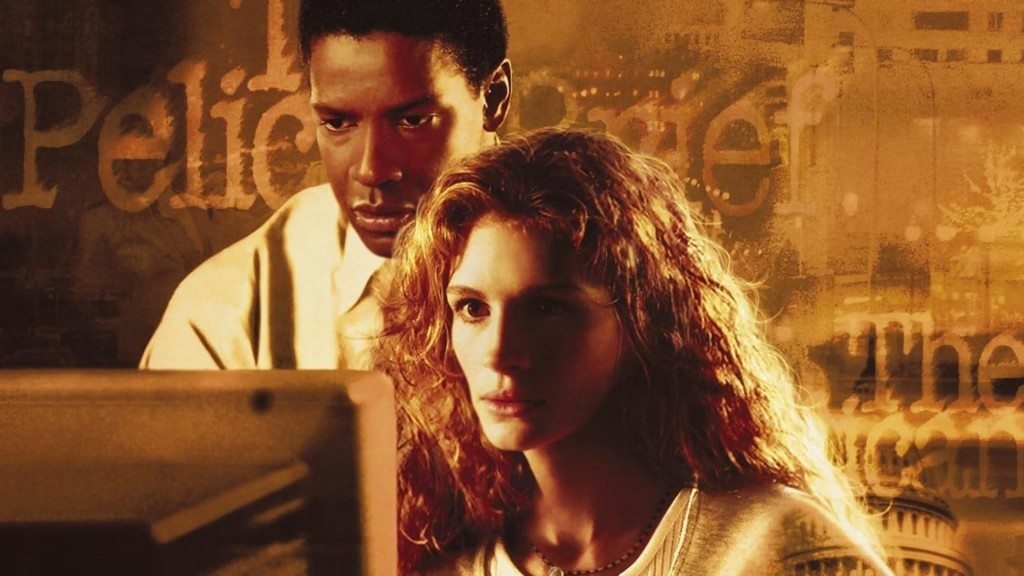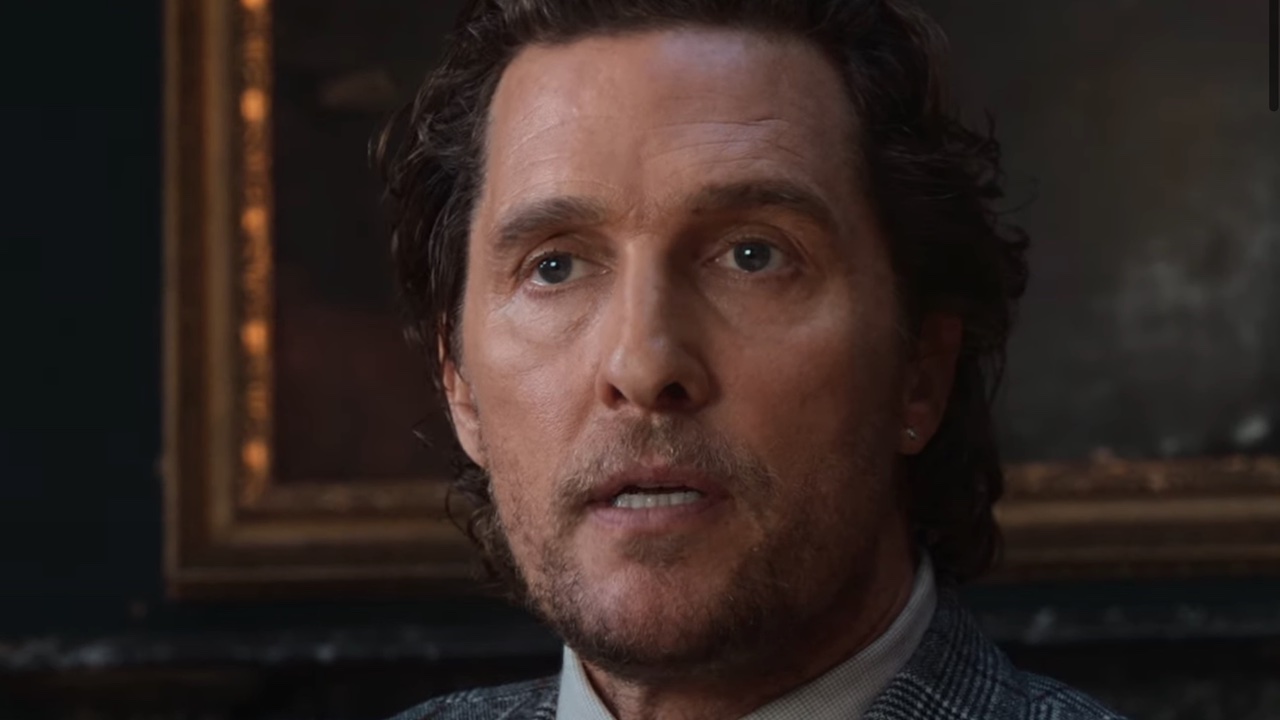Identifying John Grisham Film Adaptations Starring Matthew McConaughey

Matthew McConaughey’s career boasts several successful collaborations with renowned authors, and his appearances in film adaptations of John Grisham novels stand out. While McConaughey has starred in numerous films, his contributions to the cinematic landscape of Grisham’s works are noteworthy, showcasing his range and ability to portray complex legal characters. This section will specifically examine McConaughey’s roles in Grisham adaptations, analyzing his performances and highlighting the nuances of each character portrayal.
John grisham movie with matthew mc – Interestingly, despite the prolific nature of both McConaughey’s career and Grisham’s literary output, only one John Grisham novel has been adapted into a film starring Matthew McConaughey.
McConaughey’s Role in a Grisham Film Adaptation, John grisham movie with matthew mc
Matthew McConaughey starred in the 1996 film adaptation of John Grisham’s novel, A Time to Kill. He played the role of Jake Brigance, a young, idealistic defense attorney in the racially charged Mississippi Delta. The film explores themes of justice, racism, and the complexities of the legal system. McConaughey’s portrayal of Brigance was pivotal to the film’s success, establishing him as a credible leading man capable of handling emotionally complex and morally ambiguous characters.
Analysis of McConaughey’s Portrayal of Jake Brigance
McConaughey’s portrayal of Jake Brigance in A Time to Kill is characterized by a quiet intensity and a simmering moral fortitude. He captures the character’s internal conflict between his personal beliefs and the pressures of the legal profession within a deeply prejudiced society. His performance is nuanced, demonstrating Brigance’s dedication to his client while grappling with the ethical implications of his actions. The character’s weariness and determination are effectively conveyed through McConaughey’s subtle acting choices, making Brigance a compelling and relatable figure despite the intense circumstances surrounding the case.
Analyzing McConaughey’s Performance in Grisham Films

Matthew McConaughey’s portrayal of Jake Brigance in “A Time to Kill” stands as a defining role in his career, showcasing a departure from his earlier romantic comedy roles. His performance in this Grisham adaptation is characterized by a nuanced blend of idealism, moral ambiguity, and quiet intensity, perfectly capturing the complexities of the character navigating the racially charged legal landscape of the American South. This analysis will explore his acting style in this and other Grisham adaptations, highlighting how his contributions shape the narrative and thematic elements.
McConaughey’s Acting Style and Narrative Contribution in “A Time to Kill”
McConaughey’s performance in “A Time to Kill” is marked by a deliberate restraint. He avoids overt theatricality, instead relying on subtle shifts in expression and body language to convey Brigance’s internal struggles. For instance, the scene where Brigance confronts the Ku Klux Klan members responsible for the crime is a masterclass in controlled rage. McConaughey’s face is a mask of simmering anger, his body language tense but contained, communicating Brigance’s unwavering commitment to his client without resorting to melodramatic outbursts. This restrained approach underscores the film’s themes of justice, racial prejudice, and the moral dilemmas faced by those fighting for what they believe in. The quiet strength he portrays makes Brigance a compelling and relatable figure, even as he faces overwhelming odds. His character’s journey reflects the film’s exploration of the complexities of the legal system and the societal biases it can perpetuate.
Character Portrayals within Grisham’s Source Material
McConaughey’s interpretations of Grisham characters often emphasize their internal conflicts and moral ambiguities. While the source material provides a framework, McConaughey adds layers of depth and complexity through his performances. He avoids simple portrayals of good versus evil, instead presenting characters grappling with difficult choices and ethical dilemmas. This approach aligns with the complexities present in Grisham’s novels, which often delve into the grey areas of law and morality. The inherent ambiguity of the characters, reflected in McConaughey’s portrayal, enhances the overall narrative impact, making the films more engaging and thought-provoking. He doesn’t just play the lawyer; he embodies the struggle of upholding justice within a flawed system.
Exploring the Themes and Motifs in the Selected Films

Matthew McConaughey’s collaborations with John Grisham have resulted in films exploring complex themes prevalent in the legal thriller genre. These themes, while sometimes subtly presented, form the backbone of the narratives and significantly influence the characters’ arcs and ultimate fates. Analyzing these thematic elements allows for a deeper understanding of the films’ messages and McConaughey’s portrayals.
The primary themes recurring across the Grisham adaptations starring McConaughey are justice, morality, ambition, and the corrupting influence of power. These themes are not always presented in a straightforward manner; instead, they are woven into the fabric of the narrative, often explored through the internal conflicts and external pressures faced by McConaughey’s characters. The interplay between these themes shapes the dramatic tension and the moral ambiguity that characterizes these films.
Justice and its Elusive Nature
The pursuit of justice, often a central theme in Grisham’s works, is explored differently in each film featuring McConaughey. In *A Time to Kill*, justice is viewed through the lens of racial prejudice and the flawed legal system. Jake Brigance (McConaughey), while morally conflicted, fiercely defends his client, highlighting the inherent inequalities that can undermine the very concept of justice. Conversely, *The Lincoln Lawyer* presents a more cynical take on justice, with Mickey Haller (McConaughey) navigating a morally grey area, questioning whether the pursuit of justice is always synonymous with achieving it. His client’s guilt is uncertain, forcing Haller to consider the compromises necessary to win within a system that is itself often compromised. This difference in the portrayal of justice reflects the complexities of the legal world and the subjective nature of what constitutes a just outcome.
The Moral Ambiguity of Ambition
Both Jake Brigance and Mickey Haller are driven by ambition, but their motivations and the consequences of their actions differ significantly. Brigance’s ambition is intertwined with his moral compass; he fights for what he believes is right, even when facing personal risks and social disapproval. His ambition is fueled by a sense of justice, though the methods he employs might sometimes be questionable. In contrast, Haller’s ambition is more pragmatic and self-serving. He is a skilled lawyer who prioritizes winning, sometimes at the expense of moral considerations. This contrast highlights the different facets of ambition – one driven by ideals, the other by self-interest – and their impact on the characters’ actions and the ultimate consequences. The films explore the potential for ambition to corrupt, even when pursued within the confines of the law.
Power and Corruption
The corrupting influence of power is a recurring motif in both films. In *A Time to Kill*, the power dynamics between the white community and the Black community, the prosecution and the defense, and even within the legal system itself, highlight the ways in which power can be misused and manipulated to achieve unjust outcomes. McConaughey’s character confronts this power imbalance directly, challenging the status quo and fighting against the overwhelming odds. Similarly, *The Lincoln Lawyer* explores the insidious nature of power within the legal profession, showcasing how wealth and influence can distort the pursuit of justice. Haller encounters powerful figures who use their positions to manipulate the legal system for personal gain, forcing him to confront the ethical dilemmas that arise when facing such corruption. The films suggest that power, when unchecked, can lead to moral compromises and ultimately undermine the very principles of justice.
Questions and Answers: John Grisham Movie With Matthew Mc
What John Grisham novels were NOT adapted into films starring Matthew McConaughey?
Many Grisham novels have been adapted, but not all feature McConaughey. A comprehensive list would require extensive research beyond the scope of this analysis.
How did critics receive McConaughey’s performances in these Grisham films?
Critical reception varied depending on the specific film and performance. Some roles garnered significant praise, while others received mixed reviews. A detailed analysis of critical response would require further investigation.
Did McConaughey’s involvement influence the box office success of the films?
McConaughey’s star power likely contributed to the box office performance of the films, but other factors such as marketing and audience reception also played crucial roles. Quantifying his specific impact would require detailed box office data analysis.
Were there any significant changes made to the source material in the film adaptations?
Film adaptations often necessitate changes from the source material. A comparison of the scripts to the novels would reveal the extent of these alterations in each specific film.